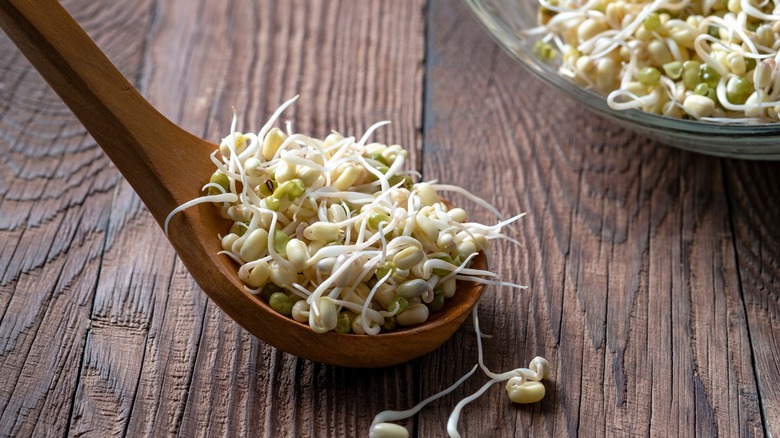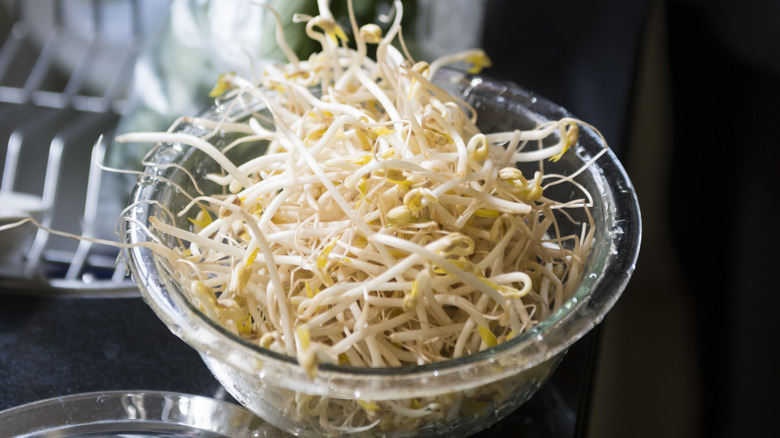Are Sprouted Seeds And Beans Safe To Eat?
Sprouts are a popular addition to many foods. They're a common ingredient in pho, and they can elevate instant ramen. Despite being delicious, raw sprouts can pose a health risk, especially to folks at risk of severe side effects from foodborne illnesses. That said, sprouts don't have to be avoided entirely because there are ways to mitigate the danger.
The reason why sprouts are considered risky to consume is because they have a chance of being contaminated with bacteria. Bacteria can penetrate seeds before they've started sprouting and become almost impossible to remove. This is because sprouts are cultivated in humid and warm conditions, allowing bacteria like E. coli, salmonella, and listeria to thrive. This is even true of homegrown sprouts. While the FDA advises avoiding consuming raw sprouts from mung beans, alfalfa, radish, and the like, they do state that cooking sprouts prior to consumption helps lower the risk of illness considerably.
Although cooking can help kill harmful bacteria, it can also reduce some nutrients in the sprouts, such as vitamins C and K and magnesium. Fortunately, there are other ways to keep yourself safe while still enjoying raw sprouts. Caution is still advised, especially if you're pregnant, elderly, or have a health condition that could make foodborne illness potentially life-threatening.
How you can lower the risks when eating raw sprouts
If you're sprouting your own beans and seeds, rinse them in white or apple cider vinegar to remove contamination. If you buy them fresh and already sprouted, wash them under running water to remove bacteria, though contamination may still remain if bacteria permeated the seed before sprouting. Another way to lower the risks is to buy refrigerated sprouts and keep them chilled before you use them, as the cold temps will reduce bacteria growth.
Before consuming sprouts, check them thoroughly. They should be tossed out if they are darkened or wilted, have a strong smell, or feel slimy. Optimally, you should always use fresh sprouts that are crisp and uniform in appearance and never eat sprouts that are past their expiration date. Although this won't remove the risk 100%, it will still mitigate it enough that you can enjoy your sprouts with less worry.

